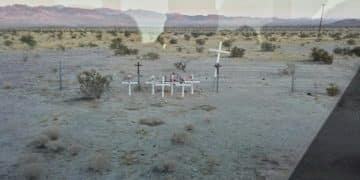Sharing Economy: Renting Tools & Cars in Your Neighborhood

The rise of the sharing economy is transforming how we access goods and services, enabling us to rent everything from tools to cars within our local neighborhoods, fostering community connections and sustainable consumption practices.
The concept of ownership is constantly evolving, and the sharing economy is at the forefront of this change. Instead of purchasing items that are only occasionally used, people are increasingly turning to rental services within their own neighborhoods. This not only saves money but also reduces waste and promotes a sense of community. Let’s dive into the rise of the sharing economy: renting everything from tools to cars in your neighborhood and what it means for the future of living.
Understanding the Sharing Economy
The sharing economy, also known as the collaborative economy, is a socio-economic system built around the sharing of resources. It shifts the focus from individual ownership to shared access, allowing people to rent or borrow goods and services from each other. This model has gained significant traction in recent years, driven by technological advancements and changing consumer preferences.
What Drives the Sharing Economy?
Several factors contribute to the growth of the sharing economy. Primarily, it’s the convenience and cost-effectiveness that appeals to many users. Renting items reduces the financial burden of purchasing expensive equipment that may only be used sporadically.
Additionally, environmental consciousness plays a role. By sharing resources, communities can minimize waste and lower their carbon footprint. The sharing economy also fosters a sense of community, as people connect and interact through these shared platforms.
- Convenience: Easy access to tools and equipment without the commitment of ownership.
- Cost Savings: Reduces the need for expensive purchases, saving money in the long run.
- Environmental Benefits: Promotes sustainable consumption by sharing resources.
To summarize, the sharing economy is transforming the way we think about consumption, offering a more sustainable and community-oriented approach.

Tools at Your Fingertips: Neighborhood Tool Libraries
Imagine needing a specialized tool for a one-time project and having it available just around the corner. That’s the reality of neighborhood tool libraries, one of the most practical applications of the sharing economy. These libraries offer a wide range of tools for rent, from basic gardening equipment to power tools, making DIY projects more accessible and affordable.
Benefits of Tool Libraries
Tool libraries significantly lower the barriers to entry for home improvement projects. Instead of investing in tools that may only be used once or twice, people can rent them for a fraction of the cost.
Furthermore, tool libraries promote skill-sharing and knowledge exchange within communities. Often, experienced members offer workshops and guidance, helping others learn how to use the tools safely and effectively.
In conclusion, tool libraries exemplify the sharing economy’s potential to empower individuals and strengthen community bonds.
Wheels When You Need Them: Car Sharing Services
Car sharing services are revolutionizing urban transportation by providing on-demand access to vehicles without the hassles of ownership. Whether you need a car for a quick errand or a weekend getaway, car sharing offers a flexible and eco-friendly alternative to owning a vehicle.

How Car Sharing Works
Car sharing services typically operate through mobile apps, allowing users to locate, reserve, and unlock vehicles with ease. Cars are strategically located throughout urban areas, making them readily accessible to members.
Users pay for the time they use the car, which often includes fuel and insurance. This pay-as-you-go model can be more cost-effective than owning a car, especially for those who only drive occasionally.
- Convenient Access: Cars are available on-demand through mobile apps.
- Cost-Effective: Users pay only for the time they use the vehicle.
- Eco-Friendly: Reduces the number of cars on the road, lowering emissions.
In conclusion, car sharing is a prime example of the sharing economy’s ability to transform transportation and promote sustainable urban living.
Beyond Tools and Cars: Other Sharing Opportunities
The sharing economy extends far beyond tools and cars, encompassing a wide array of goods and services. From clothing rentals to shared office spaces, the possibilities are virtually endless. This expansion is driven by the desire to access more resources with greater flexibility and sustainability.
Expanding the Sharing Ecosystem
Clothing rental services are gaining popularity as consumers seek to reduce their wardrobe expenses and environmental impact. These services offer access to a diverse range of styles and sizes, catering to various tastes and occasions.
Shared office spaces, also known as coworking spaces, provide a collaborative environment for entrepreneurs and freelancers. These spaces offer flexible lease terms, shared amenities, and networking opportunities, fostering innovation and community.
In short, the sharing economy is continually evolving, creating new opportunities for individuals and businesses to thrive.
The Impact on Communities and the Environment
The sharing economy has profound implications for communities and the environment, fostering a more sustainable and connected society. By promoting resource sharing and reducing waste, it contributes to a greener future. Additionally, it strengthens community bonds by encouraging interaction and collaboration among members.
Building Stronger Communities
The sharing economy promotes a sense of belonging by connecting people through shared interests and resources. Whether it’s a tool library or a car sharing service, these platforms create opportunities for neighbors to interact and support each other.
Local businesses can also benefit from the sharing economy by partnering with shared platforms to reach new customers and increase their visibility. This collaboration can lead to a more vibrant and resilient local economy.
In essence, the sharing economy is a catalyst for community building and social cohesion.
Navigating the Challenges and Ensuring Trust
While the sharing economy offers numerous benefits, it also presents certain challenges that need to be addressed. Ensuring trust and safety is paramount to the success of these platforms. Implementing robust verification processes and user review systems can help mitigate risks and build confidence.
Addressing Trust and Safety Concerns
Background checks and identity verification are essential for creating a secure environment for both renters and lenders. These measures help prevent fraud and ensure that users are who they claim to be.
User review systems provide valuable feedback on the quality of goods and services, allowing users to make informed decisions. These reviews also hold providers accountable for maintaining high standards.
- Verification Processes: Implement robust identity verification to prevent fraud.
- User Reviews: Provide feedback on the quality of goods and services.
- Insurance Coverage: Offer adequate insurance to protect against damages or losses.
To summarize, addressing these challenges is crucial for building a sustainable and trustworthy sharing economy.
| Key Point | Brief Description |
|---|---|
| 🤝 Community | Sharing builds connections and support among neighbors. |
| 💸 Savings | Renting reduces the cost of ownership and infrequent use. |
| 🌱 Sustainability | Sharing conserves resources and minimizes environmental impact. |
| 🔑 Access | Gain easy access to diverse goods and services on demand. |
FAQ
▼
The sharing economy is a socio-economic system based on sharing access to goods and services rather than individual ownership. This includes renting tools, cars, and other items as needed instead of buying them outright.
▼
To join a tool library, research local options online. Most require a membership fee providing access to a wide range of tools. Some libraries also offer workshops teaching tool usage.
▼
Car sharing reduces transportation costs, eliminates maintenance hassles, and promotes eco-friendly habits. It’s perfect for infrequent use or those avoiding car ownership costs.
▼
Reputable platforms use verification, reviews, and insurance for safety. Always review these features before participating, and report any concerns to maintain safety standards.
▼
Resource sharing reduces demand for new products, minimizing waste and production emissions. It helps create a sustainable consumption model that benefits the planet.
Conclusion
The sharing economy represents a transformative shift in how we consume and interact with our communities. By embracing shared access over individual ownership, we can create a more sustainable, connected, and economically viable future for all.





